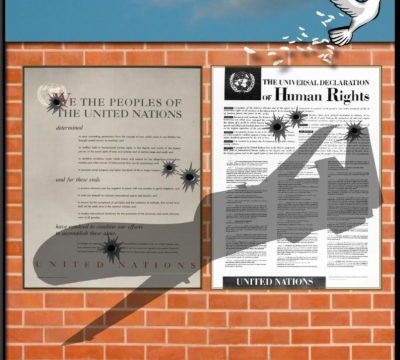Prof. Dr. Ángel L. Martínez
City University of New York
CoVID 19, police brutality, and traumatic economic decline are the stage for a preparation for a fight back at the City University of New York (CUNY) to be led by its union of education workers – Professional Staff Congress (PSC-CUNY). The three-headed monster of crises have sharpened the contradictions facing attempts by the State of New York to continue imposition of its austerity regime on CUNY, a university for the working clsss of New York City, a COVID 19 epicenter. In the New York State budget for 2020, Governor Andrew Cuomo announces no new funding for CUNY and more cuts coupled with that unpleasant news.
Coupled already with economic decline that had long been visible yet only more aggravated by the pandemic, the risk of job loss and even full-time status is in jeapordy at CUNY.
Part of the budget-slashing normal that continues to threaten many academics with precarity is the norm of adjunctifi cation, as CUNY has witnessed along with most institutions of higher education in the US and many more outside of the country. Only in the US there is already a double pandemic, the dreaded respiratory disease preceded for two centuries by a pandemic tragically characterized now by breath-stealing chokeholds. Two pandemics that raise havoc on the lungs.
Adjunctifi cation compounds this by replacing,, over the last few decades, a majority full-time faculty with benefi ts and job protections with an enormous pool of “part time” and contingent faculty, with benefi ts that are not immediately accessible and without job protections. This is the higher education system’s contribution to the rampant “gig economy” that is fueling US economic collapse. In CUNY, as a result, most courses are now taught by faculty in a state of perpetual precarity, who may teach as little as one course at an hourly wage. Even an adjunct teaching the maximum of courses makes much less than a full-time faculty, now a shrinking minority, would be paid with a similar courseload.
As for full-time faculty, the switch to online resulted in a disruption that was also very severe: uncertainty about how upcoming tenure and promotion processes were to be continued.
PSC represents many titles: full and part time educational workers, teaching and non-teaching. They are all facing struggles against budget decimation even under the most severe conditions. The union has responded in opposition to austerity through protests, lobbying, and agitating for benefi ts and job security. Also, it called on New York State to “make billionaires pay” to fund CUNY.
These conditions may become more severe come the Fall semester. In addition to the ongoing adjunctifi cation, the colleges in the CUNY system are planning collectively to lay off what may be thousands of contingent workers as well as possibly reduce course offerings by up to onethird. Given that the CUNY student body is in its majority comprised of oppressed nationalities, this is inextricably linked to current struggles against racism linked to both protests against drastic cuts in public universities’ funding, against police misconduct, and the lack of resources to fight CoVID.
For adjunct faculty who have taught enough courses to qualify for health insurance, no work means no health care. PSC is struggling to keep employed as many adjuncts as possible, especially where that could result in loss of insurance. In a pandemic, the fear of the loss itself is catastrophic, Furthermore, the Union is agitating for transparency in its budget so it
can be informed for challenging proposed cuts as well as in how CUNY will implement the federal Coronavirus Aid, Relief, and Economic Security (CARES) Act which allocated funds to the university, which must in part be used to keep workers employed.
A campaign throughout the Summer will focus on these and other issues that the union is currently negotiating with CUNY management. Socially distant caravans, online town halls, and educating members about matters such as how contingent academic workers can receive unemployment insurance are some key facets of this campaign.
The hashtags for PSC’s social media campaign refl ect the deep dissatisfaction with New York State’s policy responses: #CutCOVIDNotCUNY, #SummerOfStruggle, #SaveLives- SaveJobsSaveCUNY and, very much showing the mood, #makebillionairespay.
The goals remain for PSC, among other demands, to fully fund CUNY, to save jobs, and have a plan for all workers to work safely. Constant agitation has been key to meeting demands so far and to force the CUNY administration to negotiate further with the union.
What will bring Cuomo and the CUNY administration to concede is PSC’s campaign for its demands to protect both workers and jobs, students and classes, without cuts and
layoffs? Truly, a fully-funded public university is necessary for the economic health of the communities they are mandated to serve.










